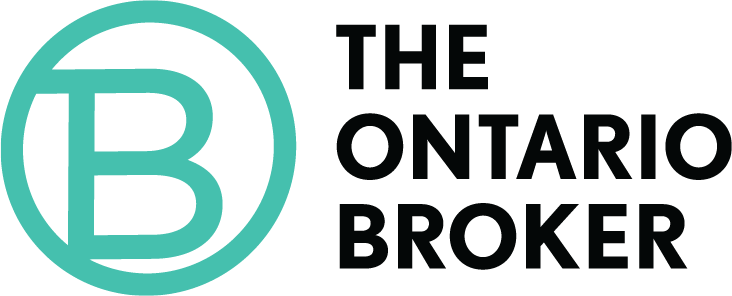

With IBAO CEO Colin Simpson
“In the initial stages, when news about the virus was picking up, I was brought back to SARS and some of the challenges, which seemed drastic at the time. Mid to end of February it became pretty evident something was evolving beyond SARS. But the extent of the impact took us all by surprise.”
I’ve set up a call with Colin to discuss this issue of the magazine, having had to reschedule a few times based on fires needing to be put out and daily resequencing of priorities.
“We closed the office mid–March and moved to a work–from–home model. Given the nature of what we do and the technology investments we made last year, we’re able to operate 95% remotely. Some of the challenges we ran into were our in–person education offerings and the timing of shutting them down.
We certainly thought we’d have a few days to move to other options, but it was quite immediate, and without knowing when we might be able to offer in–person offerings again, we needed to quickly transition to a virtual classroom. This was a lot of work in a very short timeframe.”
There may have been a few other challenges, but Colin’s known for his laser focus on delivering value to broker businesses and presenting articulated positions of the channel’s current and future struggles complete with strategies and solutions to all stakeholders involved. “The key for us in all of this is to remain accessible. As long as we’re responding in an appropriate and timely manner to members, insurers, regulators, politicians, we’re cementing the broker’s role within this industry. That’s proven itself time and time again over the course of this pandemic, because otherwise we’d be getting challenged on the value we bring to the industry.”
Not striving for further success isn’t in Colin’s reality.
“A benefit of this pandemic is the opportunity it presents to step up. Especially recently, as an association we’re seen as delivering more than would be expected ordinarily. Technical and business aspects shine through. A smaller number of members and business partners are impacted by initiatives like Convention. Within this crisis, many more are touched by the technical aspects we’re delivering. Continuing to deliver extensive value—that’s the opportunity.”
Colin’s leadership revolves around strategic planning always, with a view that it’s the only reason we’re able to operate beyond damage control. It’s perhaps what I appreciate most about him and his presence at IBAO, and it’s certainly why we’re able to effectively deal with crises like this one.
“If your current operations are stable, I’d be starting to open up your future lens again. What do you need to do to be better prepared, where are the threats in your portfolio and how do you transition, diversify, spread your risk. Fulfilling niches is key to creating value if that niche remains sustainable. But putting all your eggs in one basket is a dangerous strategy to begin with. You need a few different options to rely on. Your core should be as sustainable as possible through any crisis—you then build your expertise and speciality around that.
“What this comes down to is people—your team and the ability to work together effectively. We leverage each other’s strengths at IBAO. We all want to do a great job. That makes a tangible difference. If you’re confident in what you’re doing, then you want to work together to accomplish big things. Our Board and volunteers are key to understanding the challenges and pressures and what an appropriate response looks like. They’ve become an essential day–to–day resource for IBAO’s management team and our lifeline to understanding the reality of our members.
“When you get up in the morning you don’t necessarily know what you’ll be doing that day, or what direction you might be pulled in, but whatever you do, if it directly benefits your stakeholders, you’re halfway there.”
Being pulled in every direction is certainly what’s happening with brokers amidst this pandemic, and something we discuss frequently at IBAO to help determine how best to focus our efforts and support our members during this time.
“For sure, brokers have stepped up in all aspects of this crisis. Working from home, prepared or otherwise. Managing auto relief and business interruption concerns. Supporting their customers and communities. The fact they’re doing all this in a crisis when their workload has increased substantially—it’s very admirable. We’re seeing some members still able to drive strategies forward. Some are already on a growth curve—preparing for the future, not distracted by the present. Some are looking through different lenses, reassessing their priorities. If reality’s shifted, what do we have to change in our business models to ensure our new reality is supported? That takes a fair amount of pivoting. Which is again, admirable.
“The role of the broker is likely to change as we move forward. More requests for advice that go beyond just insurance products. More on the risk management piece, how to manage businesses to protect against these kinds of situations.”
The unknown is how the economy will respond, how quickly and what impact it’ll have on our industry.
“My personal view is that there will be a slow down over the next few months and a pickup towards next year. Much like coming down a hill, with those smaller bumps off a roller coaster, no one knows how deep the drop will be. Are you holding your breath with white knuckles or can you see over the top and react accordingly?
“The future of associations is in the value you bring to the market as opposed to being responsive. Our efforts over the past few years have created a solid foundation for this association. We can now be proactive and react proactively. Drive market trends. Lead key discussions. They’ll become a point if you’re just being responsive, you’ll fall by the wayside.
“For brokerages, there will be a refocus on business and efficiency and how customers are best served. Brokers need to look at their own operations. Going paperless, data security and protection, cyber, staff compensation models—there’s a whole list of things to look at. Certainly, trying to anticipate risks for clients and the coverages being sold will be key. One challenge coming out of this will be how insurance and reinsurance companies respond by changing policy wordings on what’s clearly covered and what isn’t in the future. But there are interesting opportunities to move the entire industry forward in certain aspects, for sure. Real positives can be addressed to help the industry and specifically broker distribution. I’d be stunned if the broker distribution network doesn’t come out of this both stronger and wiser.”
